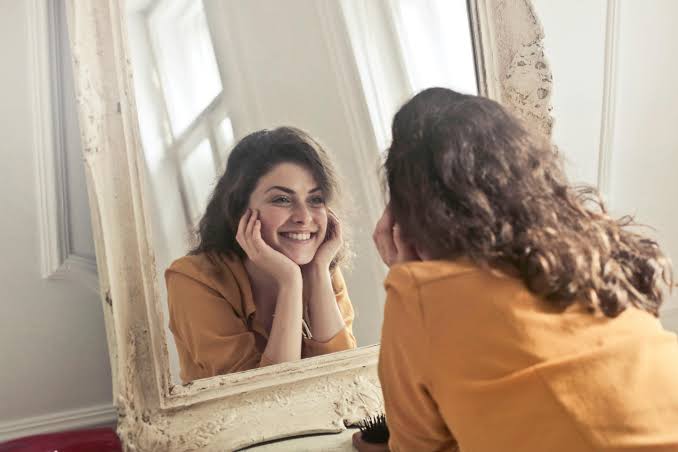● Albulescu, P., Macsinga, I., Rusu, A., Sulea, C., Bodnaru, A., & Tulbure, B. T. (2022). "Give me a break!" A systematic review and meta-analysis on the efficacy of micro-breaks for increasing well-being and performance. PLOS ONE, 17(8), e0272460. https://doi.org/10.1371/journal.pone.0272460
● Cerea, S., Panzeri, A., Burdisso, B., Bottesi, G., Mancin, P., Rapisarda, M., & Ghisi, M. (2024). More than body appearance! Improving body image in young women through a functionality‐focused intervention combined with psychoeducation: A randomized controlled trial. British Journal of Clinical Psychology, 64(2), 415-441. https://doi.org/10.1111/bjc.12514
● Hood, J. (2022, July 26). The benefits and importance of a support system | Highland springs clinic. Highland Springs. https://highlandspringsclinic.org/the-benefits-and-importance-of-a-support-system
● Hochstein, R. E., Veresiu, E., & Harmeling, C. M. (2024). Moralizing everyday consumption: The case of self-care. Journal of Consumer Research, 52(1), 219-242. https://doi.org/10.1093/jcr/ucae056
● Jeffery, B., Weddle, B., Brassey, J., & Thaker, S. (2025, January 16). Thriving workplaces: How employers can improve productivity and change lives. McKinsey & Company. https://www.mckinsey.com/mhi/our-insights/thriving-workplaces-how-employers-can-improve-productivity-and-change-lives
● Kertechian, K., & El-Farr, H. (2025). Body image in the workplace: Assessing the impact on self-esteem and employee engagement. https://doi.org/10.2139/ssrn.5183440
● Krouse, L. (2023, March 22). Tips for a healthy body Image| JED. The Jed Foundation. https://jedfoundation.org/resource/tips-for-body-positivity-ways-to-feel-better-about-our-bodies/
● Melissant, H. C., Jansen, F., Eerenstein, S. E., Cuijpers, P., Lissenberg-Witte, B. I., Sherman, K. A., Laan, E. T., Leemans, C. R., & Verdonck-de Leeuw, I. M. (2021). A structured expressive writing activity targeting body image-related distress among head and neck cancer survivors: Who do we reach and what are the effects? Supportive Care in Cancer, 29(10), 5763-5776. https://doi.org/10.1007/s00520-021-06114-y
● Mental Health Foundation. (2019). Body Image: How we think and feel about our bodies. London: Mental Health Foundation.
● Mey, L. K., Wenzel, M., Morello, K., Rowland, Z., Kubiak, T., & Tüscher, O. (2023). Be kind to yourself: The implications of momentary self-compassion for affective dynamics and well-being in daily life. Mindfulness, 14(3), 622-636. https://doi.org/10.1007/s12671-022-02050-y
● Mills, F., Drury, J., Hall, C. E., Weston, D., Symons, C., Amlôt, R., & Carter, H. (2025). A mixed studies systematic review on the health and wellbeing effects, and underlying mechanisms, of online support groups for chronic conditions. Communications Psychology, 3(1). https://doi.org/10.1038/s44271-025-00217-6
● NANDA International. (2021). NANDA Nursing Diagnoses: Definitions and Classification, 16th Edition.+
● National Institute on Aging. (2025, January 14). Human verification. Human Verification. https://www.nia.nih.gov/health/exercise-and-physical-activity/three-types-exercise-can-improve-your-health-and-physical
● Nichol, B., Wilson, R., Rodrigues, A., & Haighton, C. (2023). Exploring the effects of volunteering on the social, mental, and physical health and well-being of volunteers: An umbrella review. VOLUNTAS: International Journal of Voluntary and Nonprofit Organizations, 35(1), 97-128. https://doi.org/10.1007/s11266-023-00573-z
● Yarosh, C. (2024). Cognitive behavioral therapy workbook for self-esteem: Identify, challenge, and change your thoughts and actions. Simon & Schuster.
● Zhang, Y., Wen, Z., Zhu, Y., & Guan, G. (2024). Effects of physical exercise on body esteem among females: A meta-analysis. BMC Public Health, 24(1). https://doi.org/10.1186/s12889-024-20861-7

